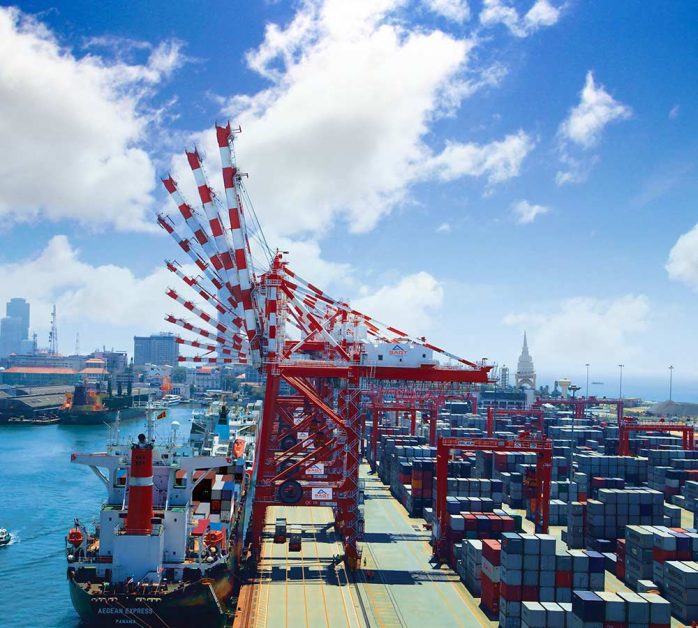November 6, 2020: Feeder vessel operators to and from Chittagong and the hubs of Colombo, Singapore and Port Klang are to slap emergency cost recovery surcharges (ECRS) on outbound and inbound shipments to Bangladesh.
The moves comes amid acute congestion at the hubs, linked to pandemic-related reduced numbers of port workers,
Feeder vessels calling at Colombo are facing waits of up to five days and, in Singapore, more than two days to get a berth. This creates uncertainty for feedered containers to get onboard their mother vessels, according to stakeholders.
Two feeder vessel operators have so far announced an ECRS to recover extra costs due to the congestion.
Singapore-headquartered Far Shipping Lines told customers this week it would charge an additional $75 for each laden container and $37.50 for each empty box from 15 November, applicable to and from Chittagong and Colombo.
“There have been reduced productivity and severe congestion, causing hardship to all operators,” it said. “Accordingly, we have no option but to introduce an emergency cost recovery surcharge.”
And Transworld Feeders said today it would also apply an ECRS, at the same level, from 16 November on its Chittagong-Colombo-Chittagong route, and a $70 per laden container and $35 per empty box charge on its Chittagong-Singapore-Port Klang route from 20 November.
“We have been encountering unprecedented delays in Colombo, which have resulted in severe delays to our vessels with port stays exceeding seven days in certain cases, resulting in port call omissions and route changes at short notice,” it said.
Maersk confirmed to customers this week that severe delays had been seen across Colombo’s container terminals:
“SAGT Terminal has been facing severe labour shortage issues which impacted operations. These have resumed with low productivity.” It added that inter-terminal transfers to SAGT had also been delayed
It said: “CICT Terminal is currently operating with an average labour availability of more than 90%. However, JCT, the government terminal, has labour availability of less than 70%.”
Some 44% Bangladeshi goods are transhipped through Singapore, 37% through Colombo, 12% through Tanjung Pelepas and the remaining 7% through Port Klang.
“Any additional charge ultimately creates pressure on shippers or consignees affecting trade,” said an official of a main line operator in Dhaka.
Abdus Salam Murshedy, president of the Exporters Association of Bangladesh, told The Loadstar today that any surcharge or additional costs during the pandemic days would be “a drag on the trade’s recovery”.
He added: “We expect the surcharges will be withdrawn as congestions ease,” he said.
Source: The Loadstar








